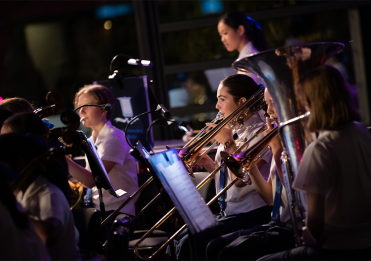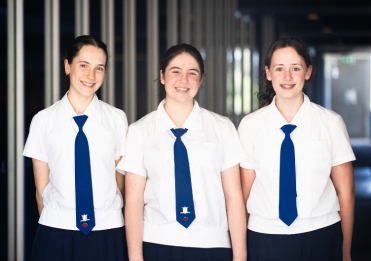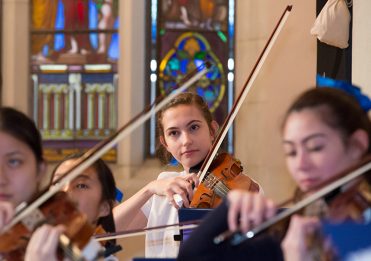MSG News
Mark your diaries for our inaugural Soirée on 8 October! This event is currently being curated by the MSG and Ms Karin Schaupp. The evening will feature several guest parent and staff performers in a relaxed and intimate surrounding. Sit back, relax, and be entertained by the talent within our vibrant musical community. This is sure to become an eagerly anticipated annual event on the School calendar.
The evening is an opportunity to meet other music parents, with refreshments on the Pool Lawn from 5.30 pm and a post-concert dinner from ‘That Greek Truck’.
Tickets are now available here.
Please contact the Music Support Group at msgbggs@gmail.com.au if you have any questions.

Spare Gala programs available
We have some spare Gala—Luminescence programs from the concert. If students would like to collect one, you are welcome to come down to the Instrumental Music Department to do so. Please see Mrs Harper in the Instrumental Music Office to get yourself a copy.
Year 12 farewell
Each year, we say thank you and bid a fond farewell to our Year 12 Instrumental Music students in a special evening celebration at BGGS. This year, on Tuesday 11 October, we will have the opportunity to extend our deep gratitude and best wishes to our wonderful Year 12 2022 girls. It is a bittersweet moment when we look across the room at all the students who have made such a long and lasting commitment to their music education at BGGS. It is an evening where we look back fondly at their first steps at the School, their progression over the years, and their triumphant final moments with us at BGGS. We hope that all our Year 12 students and their families can attend this evening with us. Stay tuned for further details in the coming weeks.
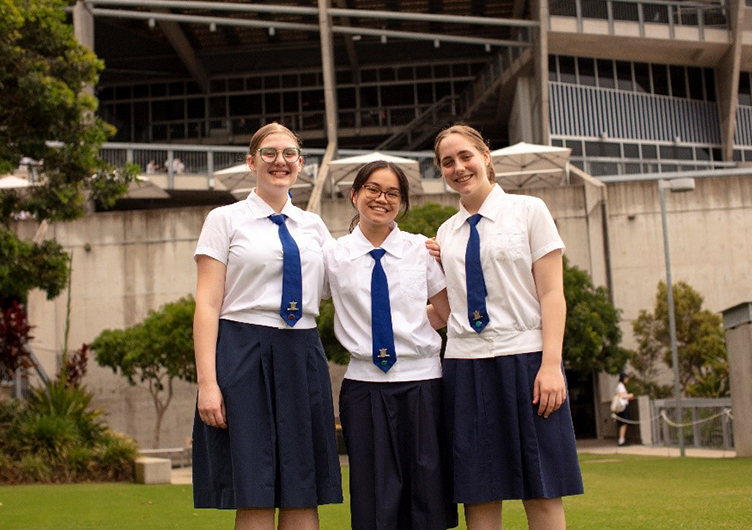
Our 2022 Music Captains: Pascal Green (12G); Maddy Khoo (12E); and Sally Grice (12E)
From the teaching studio
On Monday this week, we stopped by Ms Pollicina’s studio for this week’s episode of ‘From the teaching studio’. We found two of BGGS’ youngest musicians, Karin Sagara (7R) and Grace Zhao (7L), working hard on some of their repertoire.
What do you enjoy most about playing your instrument?
Grace—‘The thing I enjoy the most about violin is the opportunities that have come with learning the instrument. Music has taught me many valuable skills that can be used in everyday life and academics. It has opened new doors for me as an individual, introducing me to activities and groups I would not know of if I had not chosen the path I am on today. It has also helped me develop friendships with people I might never cross if I was never associated with music.’
Karin—‘I love playing the violin as it gives me time and allows me to play away my stresses and worries. I also love to make beautiful music.’
What technology do you find being used in your learning here at BGGS that you find most interactive and/or engaging? Do you enjoy this aspect of the Instrumental Music Program at BGGS?
Grace—‘BGGS has brought new possibilities with my learning in many ways, the technology around me has helped bring my learning to new levels. Something as simple as the rooms we are provided for practice before an exam can help so much, the overall environment takes your music to another level. There are a variety of technologies here in BGGS that boosts your musical learning, and I find this interactive part of instrumental learning especially engaging and enjoyable.’
Karin—‘I like using the electronic tuner every lesson as it is easy to use and follow, as well as the precise and helpful exercises Ms Pollicina puts on our Minerva page.’
Ms Pollicina is a very experienced and respected musician and teacher—what do you feel is the most important thing you have learned from her this year?
Grace—‘A definite improvement in my overall playing this year is my rhythm, although it is not perfected yet, I have come a long way since the beginning of the year. Miss Pollicina has taught me many useful practices and warmups to help with staying on beat while I’m playing. She has also taught us how music isn’t just about the overall playing of oneself, but how the audience, conductor, and the people around you can all affect the way it is interpreted. Music together can be bigger, bolder, and better than music played alone.’
Karin—‘Ms Pollicina has taught me a lot, but what I especially value from her is the use of both the bow and finger placement to go from sharp, expressive sounds, to soft, light-hearted tunes.’
We asked Ms Pollicina to reflect on her teaching in Instrumental Music at BGGS.
Our Year 7 Instrumental Music students come to us from a variety of musical backgrounds and experiences. What do you see as the greatest challenge for the Instrumental Music Department when considering this?
Ms Pollicina—‘It really is wonderful to inherit so many Year 7 students from such vast and varied musical backgrounds. Here at Girls Grammar, there is an opportunity for everyone to participate and this wonderful inclusivity at every level is something I really love about our program. I would have to say one of our most challenging roles every year is to assign each new student to an appropriate level orchestra during our Year 6 auditions—an orchestra that is going to support their current level of playing but also provide an opportunity for growth and challenge.
There are eight string orchestras here at Girls Grammar, so we want to do our very best to pick the right one! Like most teachers, we wear many hats in these auditions. As music teachers, we look for things like the student’s level of musical literacy and comprehension, their understanding of beat and rhythm, and their developing sense of tonality and aural awareness. Then as string teachers, we do our best to assess the level of the student’s technical set up and tone production. Then as orchestra directors, we look at how the student responds to reading new, unpractised music—otherwise known as ‘sight-reading’.
While it’s fantastic to meet each student individually the year before they begin, it’s even better to have them join our orchestras and our group lesson program. It’s in these lessons and rehearsals that we are able to best support, teach and guide each student in their musical journey.’
Where do you find your greatest joy when teaching the younger students at BGGS?
Ms Pollicina—‘When I first began working at Girls Grammar, I remember the sheer awe and wonder I felt stepping inside these walls to witness the wondrousness that is Instrumental Music. And I must say, with every new Year 7 cohort, I see this same awe and wonder in each of their faces! It is a unique experience to participate in small group lessons weekly, to sit amongst and play with students from many other Year levels, who are the same level as you, and to develop new and long-lasting friendships with people you might not have encountered otherwise—all while making music!’
If you could offer one enduring piece of advice to assist our young students to navigate their way through music at BGGS, what would it be?
Ms Pollicina—‘Never lose your awe, wonder, and curiosity!’
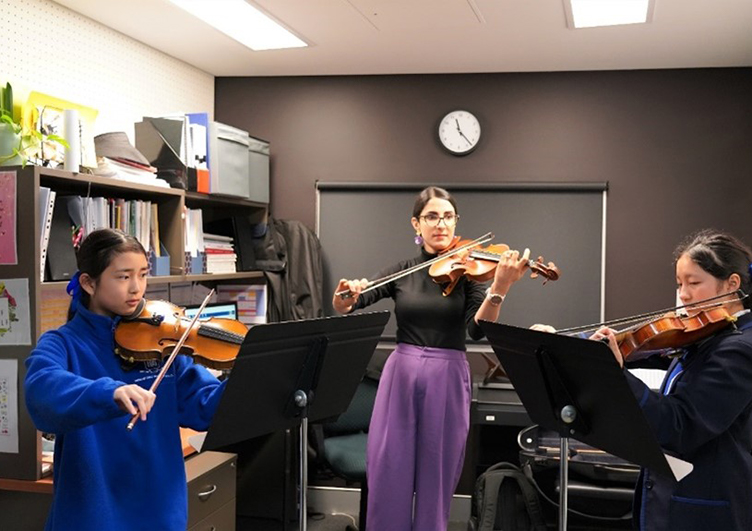
Karin Sagara (7R) and Grace Zhao (7L) in their lesson with Ms Pollicina
Cramming—how it affects performance in Instrumental Music
Most of us would be familiar with the term ‘cramming’ because we’ve probably done it at some point during our education. It is the act of studying extremely hard at the last minute, usually in preparation for an assessment of some kind. It possibly isn’t unreasonable to suggest that we sometimes do this due to a lack of organisation or not prioritising a task.
Cramming usually brings with it stress, late nights, and feelings of anxiety. But, if the job gets done, we usually forgive ourselves and we move on to the next part of our lives. It is important to understand, however, what is actually happening when we put ourselves through this process.
Are we learning anything about a particular subject area by cramming—sometimes repeatedly? Are we learning (deep knowledge) or simply remembering (short-term knowledge) facts for a test or other type of assessment? Some could argue that they do recall information for long periods after cramming—some, however, may not be able to claim this.
I often liken short-term knowledge and deep knowledge to RAM and ROM, respectively, on a computer. RAM (Random Access Memory) is used by the computer to perform tasks while under operation, while ROM (Read Only Memory) is the hard disk on which the computer stores information permanently. Importantly, RAM usually resets when the computer is switched off and ROM retains information until it is intentionally deleted. Ergo, ROM = deep knowledge and RAM = short-term knowledge. So, when we cram, we are building up information for short-term use, but with regular work/study, we are building up a long-term database of information.
In many subject areas (Mathematics, English, Geography, Chemistry, etc.) the retention of information and the ability to recall it for assessment is a huge priority. In many of these subjects, the ability to apply the information academically (formulae, etc) is also required.
In Instrumental Music, there is a third dimension, which is the physical application (performance) of knowledge. This third dimension is where cramming is not particularly useful. Because it relies on skills beyond the cognitive processes: muscle memory; physical endurance; and strength are all required to apply the cognitive skills. These elements of performing on a musical instrument, by their very nature, can only be developed and honed over time—often years. So, you may remember the scale/song/piece by cramming, but can you perform it? Taking into consideration range (how high/low it is), tempo (how fast/slow it is), length (how long does the song go for), and the fine details (key signature/articulations/dynamics/etc)—the answer is often, no. Simply because all these elements require endurance, strength, physical precision, and deep knowledge.
Therefore, you may have heard your Instrumental Music teacher say that practising 20 minutes, three times a week will always yield better results than one hour of practise, once a week. If we extrapolate that theory and apply it across the years of studying a musical instrument, the benefits of regular and consistent work can be extraordinary.
An analogy I sometimes use is ‘If we didn’t walk for an entire week, would it be a good idea to then get up and try to run?’ Because that is, effectively, what we are attempting to do when cramming on a musical instrument.
Cramming in other subject areas can sometimes be rewarded with a good mark on an assessment. But how many times have you realised that you have done well on an academic assessment only to have forgotten much of the content several weeks later? What have you learned? You have learned that cramming can, sometimes, yield a good mark on an assessment. This may not work in a subject area that is, almost exclusively, about the performance of acquired knowledge.
Because we all lead busy lives, it has become a modern necessity to compartmentalise, prioritise, and allocate time to each of the tasks in which we choose to be involved.
Mr Paul Johnston
Assistant Director of Instrumental Music
Looking Ahead
- Junior Strings Festival—Tuesday 6 and Wednesday 7 September
- MSG Meeting—Wednesday 5 October
- Music Parents Soiree—Saturday 8 October
- Year 12 Farewell—Tuesday 11 October
- New Year 7 Auditions—Friday 28 and Saturday 29 October


